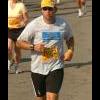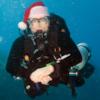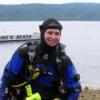Hi everyone,
It seems the more I learn about things, the less I really know. DCS is no exception. I thought I had a pretty decent grasp on the issues surrounding DCS, but there is always so much more to learn.
To start with, I never really paid it too much attention, as my dive profiles are always short and shallow, and until this year I never made any repetitive dives outside of a dive class. I always thought getting bent was the domain of the deep diver, or someone who breached their NDL for any given dive, not for someone who dives "safe" profiles well within NDL, and never rushes to the surface. And I am not talking about joint pain symptom DCS, but full blown critical condition rush to the chamber type of event.
I am learning that there are things called "undeserved hits", in which people do everything right, and still get bent. What type of things can cause that? Are there things that predispose divers to DCS? I know about the issues with alcohol, and smoking, but what else is there?
I guess I was pretty naive, but I am hoping to take a rescue class within the next year and do alot more diving, and different types of diving where I might see DCS, and I want to be prepared.
And does anyone know of a good book or other resource that doesn't read like a dry clinical manual?
Thanks...Drew
Drew,
What we DO know about decompression is that we DO NOT know much about decompression.
Haldane was the first noteworthy researcher to theorize about the relationship between pressure and time. Most tabled No-Decompression Limits are based upon Haldanean or neo-Haldanean theories. For example, the first U.S. Navy tables were based upon Haldane's theories and entered recreational diving based upon the endorsement by the U.S. Navy since the Navy was the cutting edge for decompression research at the time. The Navy tables were also the only game in town for decompression information for the average person.
No-Decompression Limits are a misnomer. The decompression involved is factored into the ascent rate which, in theory, is quite critical for the success of the mathematics upon which the tables are based. Many people believe they are ascending slowly, but are often ascending too quickly... or too slowly. If an ascent is too slow during the deeper portions of a dive, additional on-gassing may occur. Ascending too fast in the shallower portions of a dive could result in bubble seeding and formation. To avoid DCS, it becomes important to follow the parameters of the tables or model you are using. This is a lot harder than it sounds and some of us practice ascent rates day in and day out. One trick is to break down that 30 ft./min. ascent into increments. 30 feet per minute is 10 feet every 20 seconds or 5 feet every 10 seconds. Counting 1 foot every 2 seconds can be difficult so you can more easily stay in control of ascents by giving yourself small targets to reach so if you're ahead of schedule you can pause or if behind schedule you can catch up. Thios is another good reason to wear a diving watch or a water resistant sports watch while diving in addition to a computer or a digital depth gauge and timer.
Even if you ascend correctly, you can still get hammered with DCS. Why? Because ALL tables, computers and decompression models are incorrect. If decompression were drawn out like a map of the world, "Thar Be Dragons" would be written all over the place. So, divers are exploring the known map of decompression and beyond much like the early seafaring explorers were charting new passages and discovering new worlds. The quest for new frontiers has produced various dive tables within industries like commercial diving and for explorers like the Woodville Karst Plain Project (a cave diving organization mapping the Wakulla Springs and connecting systems). Models such as the Reduced Gradient Bubble Model and the Varying Permiability Model employ deep decompression stops often beginning within 50% to 80% of the maximum depth of the dive in ATA's. These models are made far more successful by employing the correct mixed gases for depth, travel and deco. Interestingly, while there are more mandatory decompression stops (most commonly every ten feet from 70 feet to the surface), the theory as to how the stops are generated and timed is more easily understood by laymen than many tables and has come to be known as "Ratio Decompression" by the practicioners. It is possible to change the dive plan and recalculate your decompression with uncanny accuracy in your head underwater "on the fly" so to speak. Ratio decompression is a hot topic since some people swear by it while others criticize the sanity of not subscribing to a hard tabled plan. For mixed gas diving and higher oxygen mixtures for decompression, RGBM and VPM plans are now state of the art, but still just theory.
Repetitive dives are even more dangerous because going back in the water with nitrogen or inert gases in your tissues is even more theoretical than the theory behind first dives. Single deep dives have often created pain/joint hits, but repetitive diving is often linked to those nasty neurological hits. Repetitive diving was something the sport diving community really employed. The Navy preferred single dives for its personnel since sending another diver down to do a job was relatively easy.
As was mentioned, many "undeserved hits" are the result of PFO's in the heart allowing blood to shunt from the right atrium into the left atrium allowing venous blood to bypass pulmonary filtration and enter the arterial system. Since decompression involves eliminating excess inert gases through respiration, such shunts would be like skipping portions of decompression or the decompression entirely. Such shunting can also be exacerbated or produced by snorkeling or freediving after SCUBA diving or climbing hills or ladders with heavy equipment loads. Rapid descents and ascents will quickly recompress excess nitrogen still in the tissues and then taking the pressure off rapidly can create bubble seeding, while exertion can cause increased pressure within the heart and allow blood to shunt as if a flap or dam had opened. 30% of the diving public is said to have PFO's according to DAN. PFO's also place an increased risk of stroke on those who have them.
One thing rarely mentioned is the frequency of diving. For those of us who freedive, it's possible to suffer barotraumas to the lungs early in a training season during dives that exceed 100 feet. But, if we build up to deeper dives we can make them without injury. This got me thinking about recreational divers, depth and nitrogen. When we freedive, the lungs compress. Why can a diver who can go to 200 feet or deeper suffer a squeeze injury at 1/2 thast depth after a few months away from freediving during the winter? Is something happening with the tissues of the lungs? Is it the diaphragm? While exploring the mysteries of such an injury that I personally suffered after making a deep freedive without adequate warm ups, I started to wonder about nitrogen elimination from tissues. I dive nearly every day. I make deep dives on air while consuming copious amounts of Coca Cola, Pepsi, Starbuck's and gas station coffees, SoBe green tea, etc., without incident and without even a drop of water entering my body for days. Yet, I'm decompressing all the time. I'll still show nitrogen in my system according to a Nitek computer when freediving the next day. I've had 1 pain only hit in 1989 when suffering "Montezuma's Revenge" during a dive trip after a deep dive on air to 180 feet. No oxygen. No chamber. That night I was playing hard beach volleyball on a team of two guys taking on several cute girls. I usually wreck dive on Coke, Original Formula Dramamine and lack of sleep. I'll dive wet, be freezing cold (I've been known to tolerate long dives in 40 F in a 3mm wetsuit without hood or gloves), and basically break all the rules divers worry about on a daily basis regarding DCS without incident, including diving while suffering from bronchitis and carrying all stage bottles up steep hills and endless stairs after cave dives. Why do this? Because it's my job and like other people I try not to let my career interfere with my tastebuds and personal comfort. In fact, it's 3 A.M. here. I have a scooter class at 9 A.M. and I just downed a can of Coke. Yet, divers follow all the rules, they can be rested, well-hydrated and even eat right and dive well within table or computer limits and take hits.
Those in hyperbaric medicine are finding themselves being briefed on what's come to be known as PADI-itis (since so many recreational divers carry that card) in which divers are taking chamber rides for aches and pains that may actually be due to travel woes such as carrying luggage through airports, long flights in uncomfortable seats, lack of rest and too much partying for the sedentary middle aged 2 week a year Dirk Pitt. So, these false hits are going into the stats along with the real deal. As for the real deal hits, I wonder how often the majority of DCS sufferers dive? It would be interesting to compare bubble research on professional commercial, military and SCUBA pros who dive daily and treat their bodies like sadists to the weekend warriors who do everything right. I'd like to see a group of smoking, drinking, night owl, insomniac dive pros pitted in bubble tests against hydration paranoid triathletes who are infrequent divers just for curiosity's sake. I wonder if tissues used to decompressing can find a way even if you turn your blood to sludge while tissues not used to offgassing shouldn't be depth tested on dive vacations? Anyone have any results or hypothesis on this matter? I'm going to bed & I'm too tired to Google. I don't know why I even posted!





















